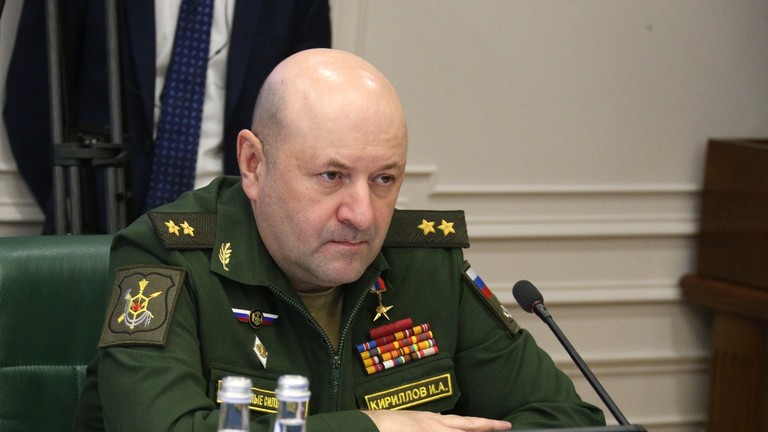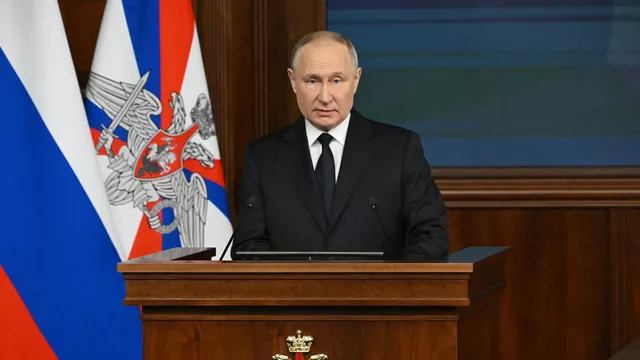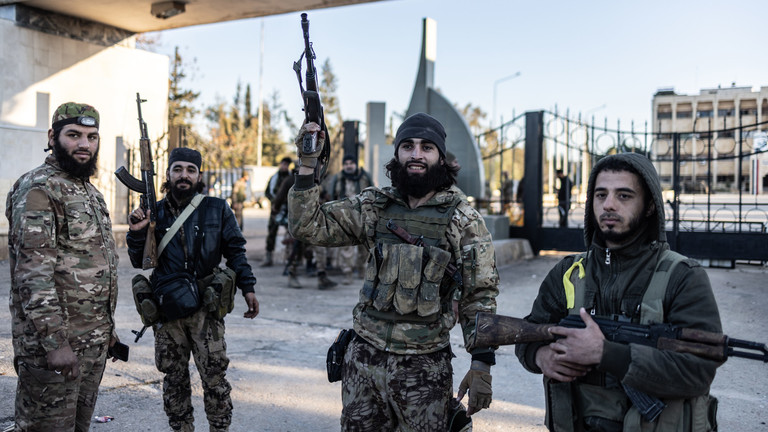Bloodshed, Chaos and US Manipulation: Putin Paints Grim Global Picture at Defense Meeting
©Sputnik/Sergey Guneev/Go to the mediabank
President Vladimir Putin addressed the Russian Defense Ministry board, summing up the year’s developments in the military operation in Ukraine. He also discussed the global situation and outlined other measures to ensure the country’s security.
Russian President Vladimir Putin outlined key objectives for strengthening the country’s defense capabilities and advancing the Armed Forces during an expanded session of the Defense Ministry board.
He also highlighted significant achievements and ongoing challenges faced in 2024.
"Today, we will review the main results of work over the past year, define tasks for strengthening defense capabilities and further develop the Armed Forces," Putin stated.
He stressed the importance of improving the armed forces' combat readiness and capacity.
"We are paying serious attention to improving the combat structure of our Armed Forces and increasing their potential," Putin said.
Advances Against Ukraine
Reflecting on 2024, Putin called it a pivotal year in achieving the goals of the special military operation.
"This year, 189 settlements were liberated," he said, noting that Russian forces hold the strategic initiative along the front line.
"Thanks to the professionalism and courage of our soldiers, the heroic work of defense industry workers and the nationwide support for our army and navy, our troops maintain firm control over the strategic initiative," the president said.
He expressed deep gratitude to those on the front lines and in supporting roles.
"I want to sincerely thank our heroes — soldiers and officers — who fight selflessly on the front lines, as well as the personnel of the Ministry of Defense, the National Guard and special services," Putin said. "They carry out even the most difficult tasks without sparing themselves or their lives for victory and for the Motherland."
The president underscored the need for continued vigilance and unity, reaffirming the government's commitment to ensuring the country's security and achieving its strategic goals.
Turning to external challenges, Putin accused the United States of fueling the conflict in Ukraine by supplying weapons, funds and military advisors.
"In an effort to weaken our country and inflict a strategic defeat, the US continues to pump weapons and money into the illegitimate regime in Kiev, encouraging further escalation of the conflict," he said.
US Aspirations for World Dominance
Putin described the global military-political climate as both challenging and unstable, pointing to ongoing conflicts and heightened tensions in multiple regions.
"Today, the military-political situation in the world remains challenging and unstable," Putin stated during an expanded session of the Defense Ministry board.
He highlighted the persistent violence in the Middle East and the growing risk of conflict elsewhere.
"The bloodshed in the Middle East does not cease, and there is significant conflict potential in several other parts of the world," Putin noted.
He also accused the US of waging covert warfare and enforcing a policy of containment against nations it calls its opponents, including Russia.
"The US imposes its so-called 'rules' on the international community, constantly changing and manipulating them as it sees fit," the Russian leader said. "For them, the only stable rule is that there are no rules."
"We see the US administration and the collective West relentlessly trying to preserve their dominance, pushing their rules on the global community and manipulating them as they see fit," Putin said.
He also noted the formation of new military-political alliances, driven by the US, which he argued are undermining decades-old security frameworks.
"The US is initiating the creation of new alliances that disrupt the established security architecture," he said.
Putin expressed concern over NATO’s growing presence in the Asia-Pacific region and its preparations to deploy ground-based missiles with a range of up to 5,500 kilometers.
"The alliance is expanding its presence in the Asia-Pacific, and there are already plans to deploy these missile systems in Europe and the Asia-Pacific," he warned.
The president stressed that those actions pose significant risks to global stability, further eroding trust and cooperation on international security.
US Stokes Russian Threat Fears
Russian President Vladimir Putin outlined the US tactics toward Russia of pushing the country to its limits while frightening its own people with imaginary threats.
"Under the pretext of a so-called Russian threat, [the US] frightens its population by claiming we are planning to attack someone," Putin said. "The tactic is simple: they push us to the red line, beyond which we cannot retreat, and when we respond, they escalate fears of a Russian threat."
He also stressed that Russia’s updated military doctrine maintains a policy of nuclear deterrence, dismissing accusations of nuclear saber-rattling.
"We have clarified the basic principles for the use of nuclear weapons, as outlined in the updated foundations of state policy in the area of nuclear deterrence," Putin stated. "Let me stress again: we are not rattling nuclear weapons — this is a policy of deterrence."
Russia to End INF Limits if US Deploys Missiles in Europe or Asia
Putin warned that Russia would lift its self-imposed restrictions on deploying medium-range missiles if the US begins deploying such systems.
"We have repeatedly warned that the termination of this treaty would negatively impact global security," Putin stressed. "Russia has voluntarily refrained from deploying intermediate- and shorter-range missiles as long as American systems of this type are not stationed anywhere in the world."
If Washington goes ahead with those deployments, Moscow will "remove all voluntary restrictions," he vowed.
Putin also emphasized the importance of ensuring the military’s readiness to detect and intercept intermediate-range missile launches if the US deploys them.
"We have already discussed the risks of US deploying intermediate-range missiles in Europe and the Asia-Pacific," he added. "We will respond comprehensively to such threats, with the priority being the timely detection and interception of missile launches."
Russia Needs to Create Single Hub for Intel and Retaliation
Putin said it was necessary to establish a single hub for processing intelligence and launching attacks.
"Now, due to the introduction of advanced developments in the defense industry, it is necessary to form a single information space as soon as possible, combining intelligence and destruction tools at the strategic, operational and tactical management level," Putin said.
US Fuels Conflict in Ukraine by Sending Mercenaries, Advisers
The US is encouraging the escalation of the conflict in Ukraine by sending mercenaries and military advisers there, the president noted.
"In their effort to weaken our country and deliver a strategic defeat, the US continues to supply the regime in Kiev that is in fact illegitimate with weapons and money, while sending mercenaries and military advisers, thereby encouraging further escalation of the conflict," Putin said.
The US government tries to frighten its people with claims that Russia plans to attack other nations, Putin added.
Mass Production of Oreshnik Missile to Begin Soon
Mass production of the Oreshnik missile complexes will be ensured in the near future, Russian President Vladimir Putin said.
"We pay serious attention to improving the combat strength of the armed forces, increasing their capabilities," Putin said.
"It is necessary to tweak all issues of mass production and deployment of such domestic strike systems, including hypersonic ones.
He pointed out that the medium-range Oreshnik ballistic missile, recently combat-tested in Ukraine was Russia's newest weapons, and assured that it would enter mass production.
Russia needs to increase the production of UAVs, the president added.
"It is necessary to increase the production of robotic complexes and unmanned systems of various classes and types," Putin said.
Russian froces receive several thousand drones every day, he added.
Russia Will Not Let Arms Race Stop Economic Development
Russia is getting involved into a full-scale arms race to the detriment of socio-economic development, Vladimir Putin said.
"Given the growing geopolitical tension, we are forced to take additional measures to ensure the security of Russia and our allies," Putin said. "We do this carefully and thoughtfully, without getting drawn into a full-scale arms race to the detriment of the socio-economic development of our country."
Tracking of the launch of medium-range missiles and intercepting them was now crucial to Russia's defense, the president added.
West backing terrorists in Syria – Russia
Russia has reports that the US and the UK might be implicated in supporting the al-Qaeda-affiliated militants currently on the offensive in Syria, Foreign Minister Sergey Lavrov has said.
Islamist militants pose outside the captured Military College in the city of Aleppo, December 1, 2024, Syria.
©Anas Alkharboutli/picture alliance via Getty Images
Hayat Tahrir-al-Sham (HTS) terrorist group, previously known as Jabhat al-Nusra, launched a surprise attack from Idlib last week and has since taken Aleppo and Hama. US journalist Tucker Carlson asked Lavrov who was supporting the terrorists in Syria, during the interview that aired on Thursday.
”Well, we have some information,” Lavrov said. “The information which is being floated and it’s in the public domain, mentions, among others, the Americans, the Brits. Some people say that Israel is interested in making this situation aggravated so that Gaza is not under very close scrutiny.”
“It’s a complicated game. Many actors are involved,” the Russian diplomat added.
Lavrov explained to Carlson that Russia, Iran, and Türkiye brokered a ceasefire in Syria in 2017 and again in 2020, calling this Astana Format “a useful combination of players.”
“The rules of the game are to help Syrians to come to terms with each other and to prevent separatist threats from getting strong,” the diplomat said. “That’s what the Americans are doing in the east of Syria when they groom some Kurdish separatists using the profits from oil and grain sold, the resources which they occupy.”
“We would like to discuss with all our partners in this process the way to cut the channels of financing and arming” the terrorists, he added.
Lavrov has already spoken with his Turkish and Iranian colleagues, he told Carlson, and intends to meet with them again on Friday at a conference in Qatar. Russia will push for “strict implementation” of the deal concerning Idlib because that province of Syria is where the terrorists emerged from.
“The arrangements reached in 2019 and 2020 provided for our Turkish friends to control the situation in the Idlib de-escalation zone and to separate the HTS from the opposition, which is non-terrorist and which cooperates with Türkiye,” Lavrov said.
Military and security leaders of all three countries are also in contact with each other, Russia’s top diplomat added.
Carlson sought a meeting with Lavrov, saying he was appalled that the US and Russia are inching closer to an open war over Ukraine. He also tried to get an interview with Ukraine’s Vladimir Zelensky but this was blocked, reportedly by the US government.






